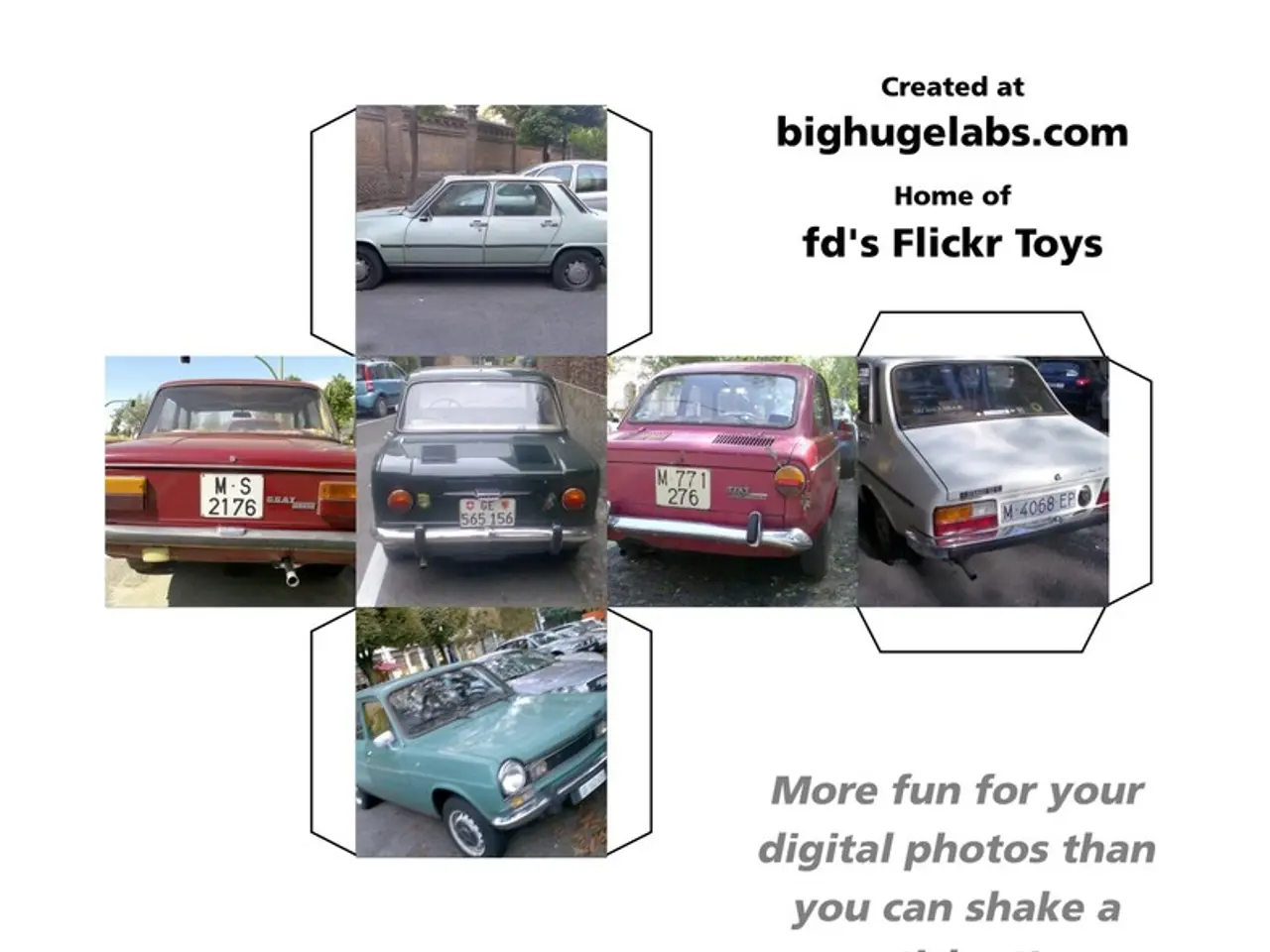Marked Improvement in Vehicle Registrations: Notable Spike in New Registrations in July Following a Sluggish June - Car Registrations Surge in July Following Sluggish June Performance
=========================================================================================
The German automotive market is currently experiencing a period of transition, with mixed trends emerging in the first half of 2025. According to recent data, the overall new car market is facing a slight downturn, with a 4.7% drop in registrations during the first six months of the year and a 14% decline in June compared to the previous year [1][5].
However, the electric vehicle (EV) segment is showing robust growth. New registrations of battery-electric vehicles reached 18.4% of all new cars in July 2025, and EV production hit a record 635,000 units in the first half of 2025, representing about a quarter of total car production in Germany [2][3].
The growth in the EV market is also reflected in the increasing popularity of plug-in hybrid vehicles (PHEVs). Registrations of PHEVs surged by 83.6% in July 2025, highlighting strong consumer interest in hybrid alternatives [3].
The growth in the EV and hybrid market segments can be attributed in part to the government's discontinuation of earlier EV subsidies in 2023, which temporarily impacted sales. However, new purchase incentives have been promised, supporting recovery and growth in these market segments [2].
The future outlook for the German new car market suggests moderate overall recovery driven by economic stabilization, with car registrations projected to trend upward to around 225,000 units in 2026 and 251,000 units in 2027 [4]. The electric and hybrid vehicle segments are expected to continue expanding sharply as Germany prioritizes the transition to low-emission vehicles to reduce transport emissions.
Germany remains a major EV production hub, poised to strengthen its position as Europe's top e-car producer and the world's second-largest EV production location [2]. The industry should prepare for a longer period of weakness, according to consulting firm EY, but the recovery in the new car market is taking its time [6].
Despite the uncertainty and volatility in the new car industry, industry leaders such as Thomas Peckruhn, President of the Central Association of the German Automotive Industry (ZDK), and Hildegard Müller, VDA President, have called for reliable signals from politics to support the industry's growth [7]. They have emphasized the need for better framework conditions such as public charging points in Germany and throughout Europe, the expansion of power grids, affordable charging electricity, and a reduction in electricity tax for all consumers [7].
In conclusion, the current state of the new car market in Germany in 2025 shows a transition period with an accelerating shift toward electrification but ongoing challenges in overall market demand [1][2][3][4][5]. The growth in the EV and hybrid market segments, however, indicates a promising future for the German automotive industry as it prioritizes the transition to low-emission vehicles.
References:
[1] Automobilwoche. (2025). Neuwagenregistrierungen sinken im Juni 2025. Retrieved from www.automobilwoche.de
[2] EY. (2025). Neue Anreize für den Elektromobilitätsmarkt in Deutschland: Wie die deutsche Automobilindustrie sich auf die Zukunft vorbereitet. Retrieved from www.ey.com
[3] Statista. (2025). Neue Elektroauto-Registrierungen in Deutschland im Juli 2025. Retrieved from www.statista.com
[4] ZDK. (2025). Prognose für die Neuwagenregistrierungen in Deutschland 2026-2027. Retrieved from www.zdk.de
[5] VDA. (2025). Neue Neuwagenregistrierungen in Deutschland im Juni 2025. Retrieved from www.vda.de
[6] EY. (2025). Recovery in the German New Car Market is Taking its Time. Retrieved from www.ey.com
[7] Handelsblatt. (2025). Politik soll Signale für die Automobilindustrie geben. Retrieved from www.handelsblatt.com
The Commission, taking into account the recent developments in the Community's transport sector, may focus on the growing trend of electric vehicles (EVs) in the Member States, including Germany, and the potential impact on sports events due to the increased usage of EVs for transportation.
As Germany prioritizes the transition to low-emission vehicles, improving charging infrastructure, such as public charging points in Germany and throughout Europe, would not only support the growth of the electric and hybrid vehicle segments but also enhance the accessibility of sports events for EV owners.







